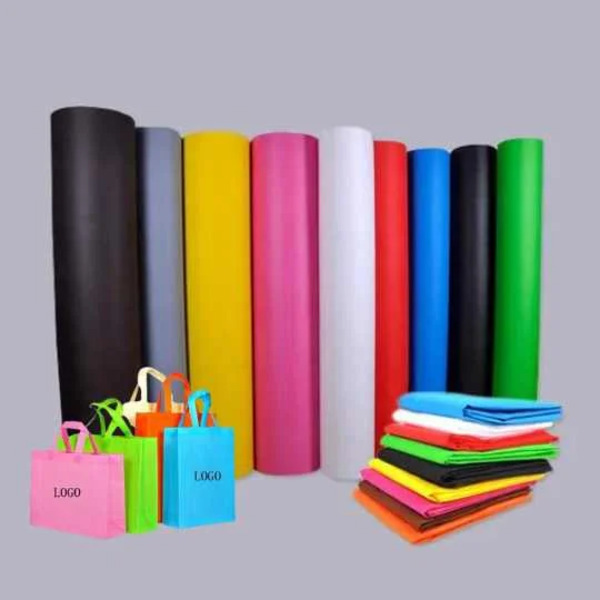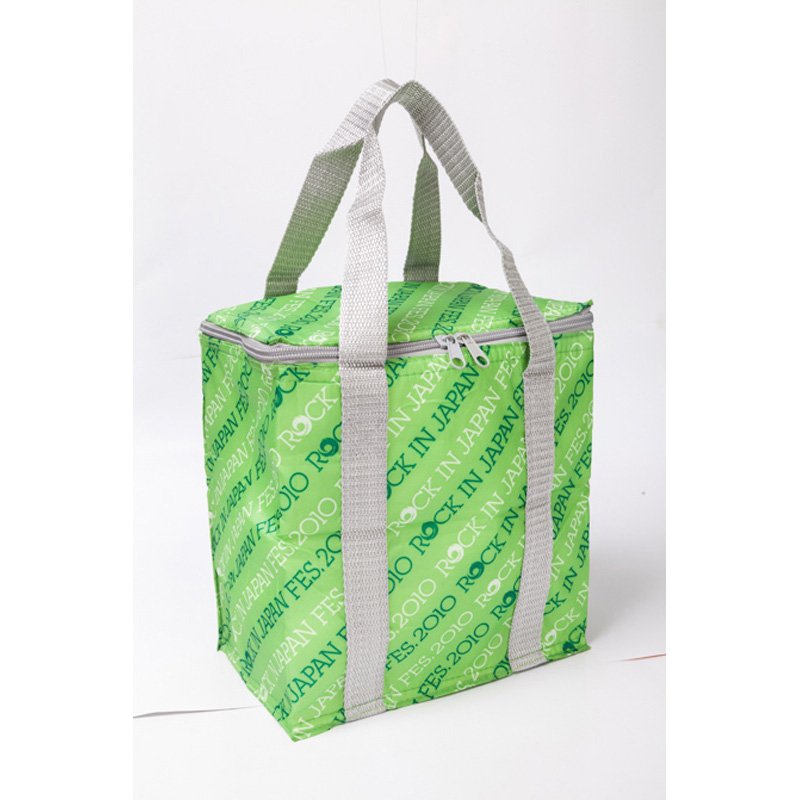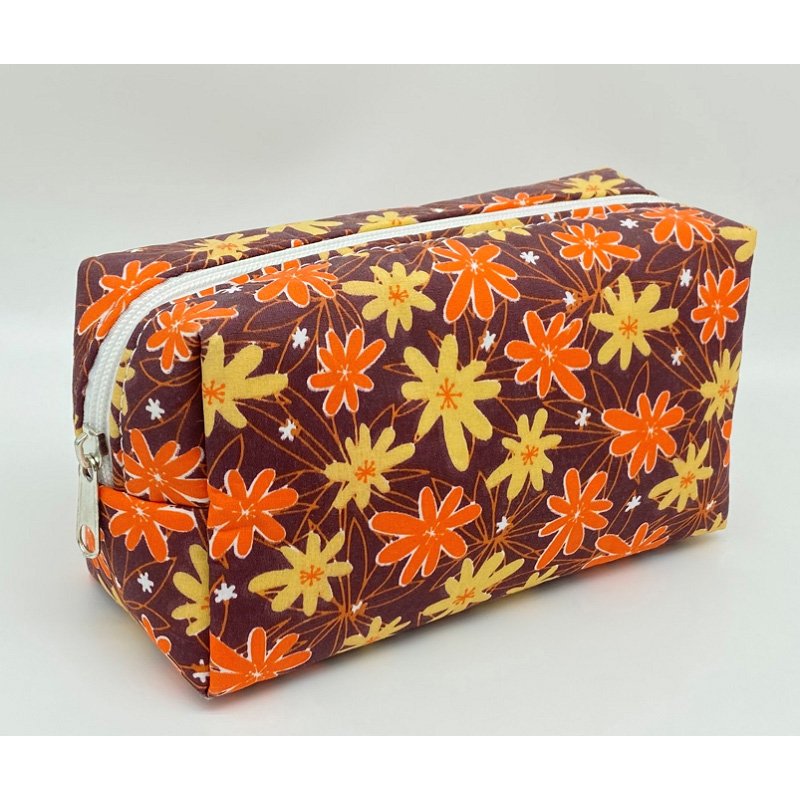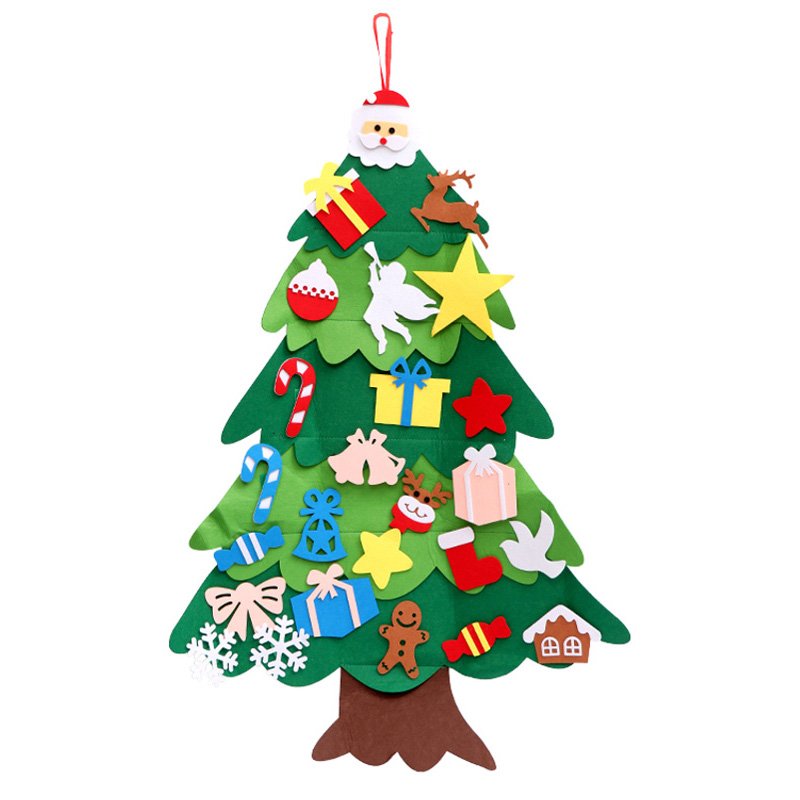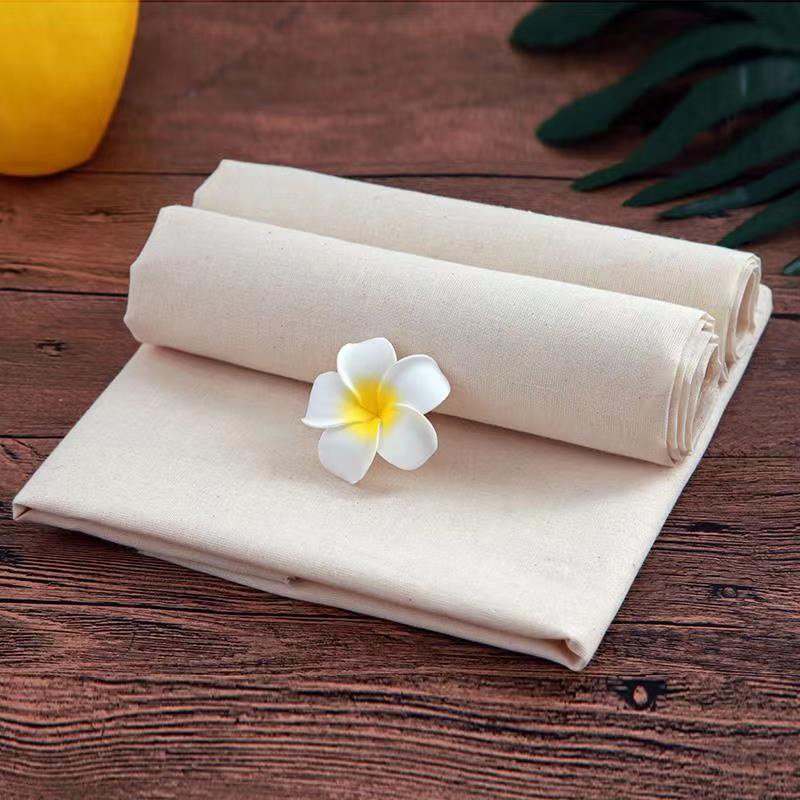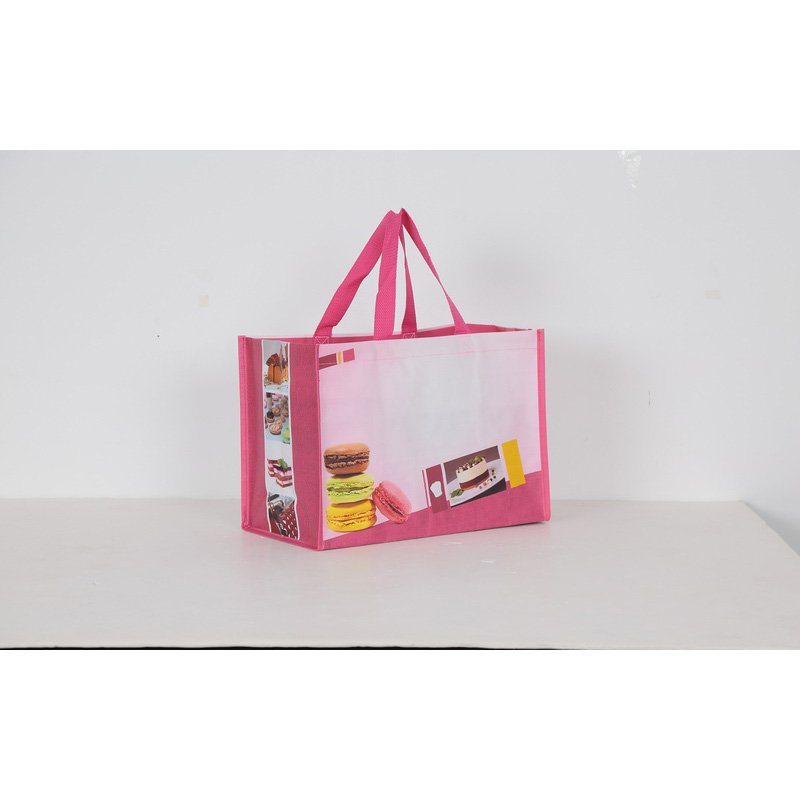When evaluating nonwoven bag manufacturers, it's important to consider several key indicators that can help you determine their quality, reliability, and suitability for your needs. Here are the five key indicators to look for:
1. Quality of Materials and Manufacturing Process
Raw Materials
- Type of Nonwoven Fabric: Check if the manufacturer uses high-quality polypropylene or other nonwoven materials. The fabric should be durable, eco-friendly, and suitable for your specific requirements.
- Consistency: Ensure that the materials used are consistent in quality, without defects or variations that could affect the final product.
Manufacturing Standards
- Production Techniques: Evaluate the methods used in production, such as ultrasonic welding, sewing, or heat sealing. These techniques impact the strength and durability of the bags.
- Quality Control: The manufacturer should have stringent quality control measures in place, inspecting raw materials, in-process products, and finished goods to ensure they meet industry standards.
2. Customization Options
Design Flexibility
- Size and Shape: The manufacturer should offer a variety of sizes and shapes to suit different purposes, from small promotional bags to large shopping bags.
- Printing and Branding: Look for options to customize with logos, slogans, or artwork. High-quality printing techniques, such as screen printing, heat transfer, or digital printing, should be available.
Additional Features
- Handles and Closures: Customization options for handles (length, material) and closures (zippers, Velcro, snaps) are essential for meeting specific needs.
- Pockets and Compartments: Additional design features like pockets or compartments can add functionality and appeal to the bags.
3. Production Capacity and Lead Times
Scalability
- Volume Capability: Assess the manufacturer’s ability to handle large orders and whether they can scale up production to meet increased demand.
- Turnaround Time: Evaluate how quickly the manufacturer can complete orders. Consistent, reliable lead times are crucial for meeting your business timelines.
Efficiency
- Process Optimization: Check if the manufacturer uses efficient production processes and modern machinery to ensure timely and cost-effective production.
- Supply Chain Management: A well-managed supply chain ensures that raw materials are sourced and delivered efficiently, minimizing delays.
4. Certifications and Compliance
Industry Standards
- ISO Certification: Manufacturers with ISO 9001 certification demonstrate a commitment to quality management systems.
- Environmental Certifications: Certifications like ISO 14001 or compliance with environmental regulations indicate a commitment to eco-friendly practices.
Safety and Ethical Standards
- Workplace Safety: Compliance with occupational health and safety standards ensures a safe working environment.
- Ethical Practices: Check for adherence to fair labor practices and social responsibility standards. Certifications like SA8000 can indicate good labor practices.
5. Reputation and Customer Service
Market Reputation
- Customer Reviews: Look for testimonials, case studies, or reviews from previous clients to gauge satisfaction and reliability.
- Industry Standing: A well-established manufacturer with a good reputation in the industry is more likely to deliver consistent quality and service.
Customer Support
- Communication: Effective and responsive communication is essential for smooth transactions. The manufacturer should provide clear and prompt responses to inquiries and updates on order status.
- After-Sales Service: Reliable after-sales support, including handling complaints or issues, is crucial for maintaining a good business relationship.
Conclusion
When choosing a nonwoven bag manufacturer, considering these five key indicators will help ensure you select a partner who can meet your quality, customization, and production needs while maintaining high standards of service and compliance. Evaluating these factors thoroughly will lead to a successful and reliable partnership.
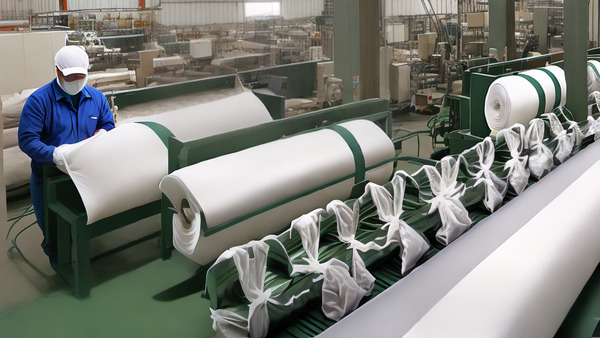
How to find a reliable nonwoven bag manufacturer?
Finding a reliable nonwoven bag manufacturer involves thorough research and evaluation to ensure that the supplier meets your quality, production, and service requirements. Here’s a step-by-step guide to help you find a trustworthy manufacturer:
1. Define Your Requirements
Product Specifications
- Material: Specify the type of nonwoven fabric (e.g., polypropylene) and any specific properties (e.g., thickness, eco-friendliness).
- Design: Determine the size, shape, color, and any custom features you need (e.g., handles, printing).
Order Details
- Quantity: Estimate your order size and consider whether you need the ability to scale up.
- Timeline: Define your delivery timeline and any critical deadlines.
2. Research Potential Manufacturers
Online Search
- Directories: Use business directories like Alibaba, Global Sources, and ThomasNet to find manufacturers.
- Search Engines: Conduct targeted searches using specific keywords (e.g., “nonwoven bag manufacturer”).
Trade Shows and Expos
- Industry Events: Attend trade shows related to packaging, textiles, and promotional products to meet manufacturers in person.
Industry Associations
- Membership Directories: Check directories of industry associations for reputable manufacturers.
3. Evaluate Manufacturer Credentials
Company Information
- Background: Review the company’s history, experience, and specialization in nonwoven bags.
- Certifications: Look for certifications such as ISO 9001 (quality management), ISO 14001 (environmental management), and other relevant industry certifications.
Customer Reviews and References
- Testimonials: Read reviews and testimonials from other clients.
- References: Ask the manufacturer for references and contact previous clients to inquire about their experiences.
4. Assess Production Capabilities
Facilities and Equipment
- Tour the Factory: If possible, visit the manufacturing facilities to assess their capabilities and quality control processes.
- Technology: Check if they use modern and efficient production equipment.
Quality Control
- Standards: Inquire about their quality control measures and standards.
- Inspection Reports: Ask for sample inspection reports or quality certifications.
5. Request Samples
Product Samples
- Quality Check: Request samples of the nonwoven bags you’re interested in to assess the quality of materials, construction, and printing.
- Customization: Ensure the samples reflect your specific customization needs.
6. Compare Quotes and Terms
Pricing
- Detailed Quotes: Request detailed quotes, including costs for materials, customization, and shipping.
- Value for Money: Compare prices to ensure you’re getting good value without compromising on quality.
Payment and Shipping Terms
- Payment Options: Understand their payment terms, including any deposits required and payment schedules.
- Delivery Terms: Confirm shipping methods, costs, and delivery times.
7. Review Customer Service
Communication
- Responsiveness: Evaluate how quickly and effectively they respond to your inquiries.
- Support: Ensure they provide clear and helpful communication throughout the ordering process.
After-Sales Service
- Guarantees: Check if they offer guarantees or warranties on their products.
- Problem Resolution: Understand their policies for handling defects, returns, or other issues.
8. Finalize the Agreement
Contracts and Agreements
- Written Agreement: Ensure all terms, including product specifications, pricing, delivery schedules, and quality standards, are clearly outlined in a written contract.
- Legal Review: Consider having a legal professional review the agreement to protect your interests.
Conclusion
By following these steps, you can systematically evaluate and choose a reliable nonwoven bag manufacturer that meets your specific needs. Thorough research, careful evaluation, and clear communication are key to establishing a successful and long-term partnership.
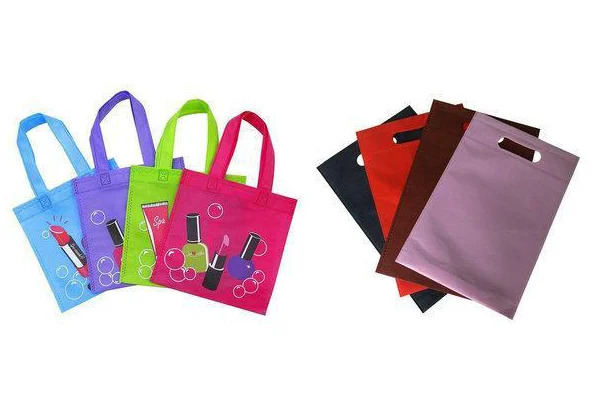
What customization options do nonwoven bag manufacturers typically offer?
Nonwoven bag manufacturers typically offer a wide range of customization options to meet the diverse needs of their clients. These options allow businesses to create bags that align with their brand identity, functionality requirements, and aesthetic preferences. Here are the common customization options available:
1. Material and Fabric Options
Fabric Types
- Standard Nonwoven Polypropylene: Durable and cost-effective, available in various thicknesses (gsm).
- Recycled Nonwoven: Eco-friendly options made from recycled materials.
- Laminated Nonwoven: Offers added strength and water resistance, available in glossy or matte finishes.
2. Size and Shape
Dimensions
- Custom Sizes: Tailored dimensions to fit specific needs, from small promotional bags to large shopping totes.
- Shapes: Various shapes including rectangular, square, circular, and unique designs tailored to specific uses.
3. Color and Printing
Colors
- Custom Colors: Wide range of colors to match brand guidelines or specific design needs. Pantone matching is often available.
Printing Methods
- Screen Printing: Ideal for simple, bold designs with fewer colors.
- Heat Transfer Printing: Suitable for complex, multi-color designs with high detail.
- Digital Printing: Best for photographic quality and detailed artwork.
- Sublimation Printing: Allows for all-over print designs, typically used on polyester nonwoven fabrics.
4. Handles and Straps
Types of Handles
- Standard Handles: Short or long handles made from the same nonwoven material.
- Webbing Handles: Made from woven fabric, offering extra strength and comfort.
- Rope Handles: Aesthetic and durable, often used for gift bags.
Handle Attachments
- Sewn-In Handles: Standard attachment for strength and durability.
- Heat-Sealed Handles: Offers a seamless look, typically used with laminated nonwoven bags.
5. Closures and Fastenings
Closure Types
- Open Top: Simple and easy access, common for shopping bags.
- Zippers: Provides secure closure, ideal for bags that need to protect contents.
- Velcro: Convenient and quick to open and close.
- Snaps or Buttons: Adds a decorative element while providing secure closure.
6. Additional Features
Pockets and Compartments
- Interior Pockets: Useful for organizing smaller items inside the bag.
- Exterior Pockets: Provides easy access to frequently used items.
Reinforcements and Bottom Gussets
- Reinforced Bottoms: Adds strength for carrying heavier items.
- Gussets: Expands the bag's capacity and provides a more structured shape.
Special Add-Ons
- ID Windows: Useful for trade shows or conferences.
- Bottle Holders: Interior or exterior holders for bottles.
- Drawstrings: For bags that need to be cinched closed.
7. Eco-Friendly Options
Sustainable Materials
- Recycled Materials: Bags made from post-consumer recycled materials.
- Biodegradable Options: Materials designed to break down more quickly in the environment.
Certifications
- Environmental Certifications: Options to ensure the materials and production processes meet certain environmental standards.
8. Packaging and Branding
Custom Tags and Labels
- Branded Tags: Custom tags for additional branding opportunities.
- Care Labels: Instructions for use and care, often included for reusable bags.
Packaging Options
- Individual Packaging: Options for individually wrapping bags, useful for retail or promotional giveaways.
- Bulk Packaging: Cost-effective packaging for larger orders.
Conclusion
Nonwoven bag manufacturers offer extensive customization options to help businesses create bags that not only serve functional purposes but also enhance brand visibility and appeal. By understanding and leveraging these customization options, you can create nonwoven bags that effectively represent your brand and meet the specific needs of your customers.
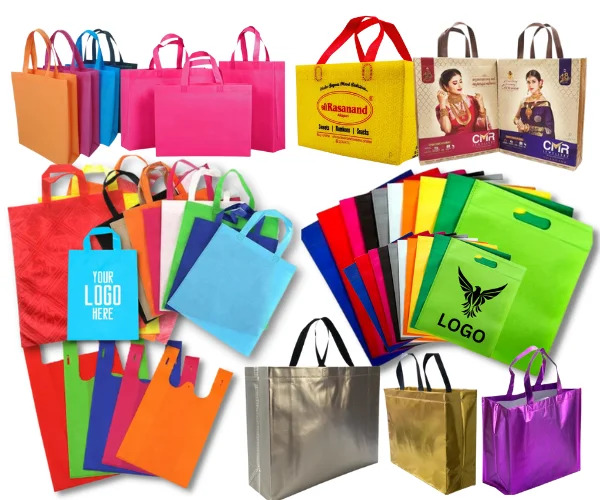
What is the typical lead time for nonwoven bag manufacturers?
The typical lead time for nonwoven bag manufacturers can vary depending on several factors, including the complexity of the order, the volume, customization requirements, and the manufacturer's production capacity. However, here is a general overview of what you can expect:
1. Order Confirmation and Sample Approval
- Design and Sample Production: 1-2 weeks
- This phase includes finalizing the design, creating a prototype, and getting approval from the customer. If revisions are needed, this may extend the time.
2. Production Lead Time
- Standard Orders: 2-4 weeks
- For standard nonwoven bags with minimal customization, the production time is typically around 2 to 4 weeks after sample approval.
- Complex Orders: 4-6 weeks or more
- Orders with extensive customization (e.g., special printing techniques, unique shapes, additional features) may take longer, around 4 to 6 weeks or more.
3. Quality Control and Inspection
- Quality Assurance: 1 week
- Post-production, manufacturers usually perform quality checks to ensure the bags meet specified standards. This process typically takes about a week.
4. Packaging and Shipping Preparation
- Packaging: 1 week
- The time required to pack the products appropriately for shipping can vary but usually takes about a week.
5. Shipping Time
- Domestic Shipping: 1-2 weeks
- For orders shipped within the same country, the delivery time is generally between 1 to 2 weeks.
- International Shipping: 2-4 weeks
- International shipping times can vary greatly depending on the destination, customs clearance, and the shipping method used (air freight is faster than sea freight).
Summary of Typical Lead Times:
- Design and Sample Approval: 1-2 weeks
- Production Lead Time: 2-6 weeks (depending on complexity)
- Quality Control: 1 week
- Packaging: 1 week
- Shipping: 1-4 weeks (depending on destination and shipping method)
Factors Influencing Lead Time:
- Order Size: Larger orders typically require more time to produce.
- Customization: More complex customization can extend production time.
- Manufacturer Capacity: A manufacturer with high demand might have longer lead times.
- Seasonality: Peak seasons (e.g., holidays) can increase lead times due to higher demand.
Tips for Managing Lead Times:
- Plan Ahead: Place orders well in advance, especially for large or highly customized orders.
- Communicate Clearly: Ensure clear and detailed communication with the manufacturer about your requirements and deadlines.
- Flexible Deadlines: If possible, build some flexibility into your schedule to account for unexpected delays.
- Expedited Services: Inquire about expedited production or shipping options if you need the bags sooner.
Understanding the typical lead time and factors that can influence it will help you better plan your orders and ensure timely delivery of your nonwoven bags.

